Tea Tree Oil For Skin Tags: Does it Really Work?
Learn how the oil works and different ways to use it to eliminate skin tags.
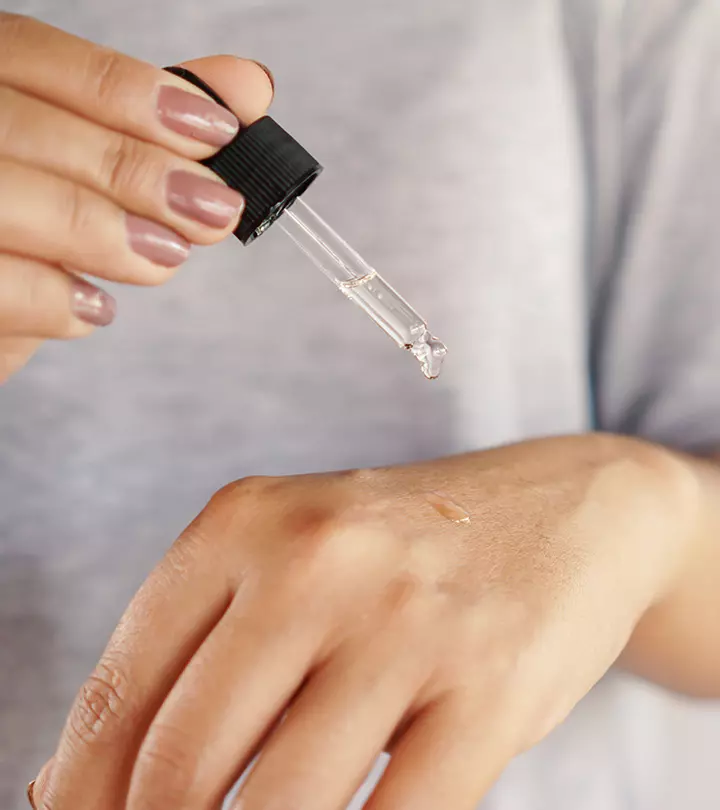
Image: iStock
Skin tags can appear on any part of the body and may look unattractive if they appear in prominent places such as the face. Are you seeking natural remedies to get rid of them? Tea tree oil for skin tags removal is the answer.
Many bloggers have found using tea tree oil for skin tag removal effective. But, how does it work? Keep reading to learn more about one of the best home remedies for skin tags.
In This Article
What Are Skin Tags?
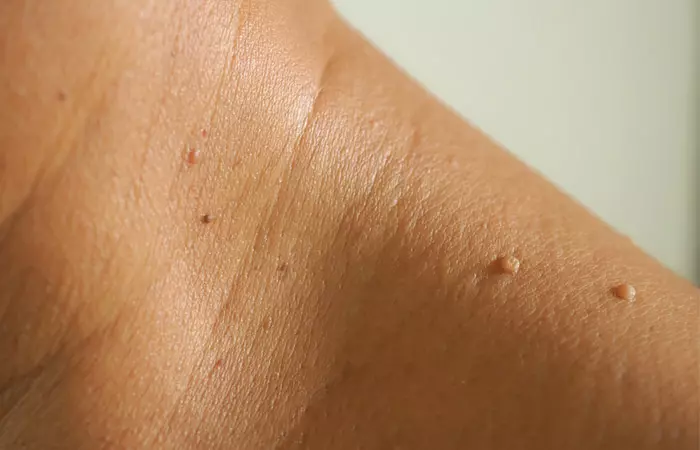
Skin tags are small, flesh-colored growths that protrude from the skin, giving them a wart-like appearance. They are caused by low-risk human papillomavirus (HPV) and are not dangerous. but should always be checked by a medical professional prior to treatment or removal (1).
They can appear on all body parts. However, certain areas like the neck, groin, thighs, armpits, and eyelids are more prone to skin tags than others. They are also more frequent among people with type 2 diabetes and insulin resistance and those who are overweight. Continue reading to learn if tea tree oil can help in removing skin tags.
Key Takeaways
- People who are overweight/obese or have type 2 diabetes or insulin resistance are more prone to developing skin tags.
- Studies suggest that tea tree oil neutralizes human papillomavirus (HPV) that causes these wart-like extensions.
- Before applying this oil (diluted), do a patch test to see if it irritates your skin.
Does Tea Tree Oil Work For Removing Skin Tags?

Yes, it may have beneficial effects on skin tags and skin health.
Tea tree oil is effective against human papillomavirus and is often used for treating warts (2). Another study found that topical application of tea tree oil for 12 weeks reduced common warts caused by human papillomavirus (3). This suggests that it can be used as an alternative medicine to treat skin tags.
Tea tree oil is one of the most popular home remedies for skin tags. The following section teaches you how to use this essential oil effectively.
How To Use Tea Tree Oil On Skin Tags

Note: Always consult a dermatologist or other qualified medical professionals to evaluate the skin tags to ensure they are not dangerous.
Follow the steps below to eliminate skin tags with tea tree oil:
- Clean the skin tags and the surrounding area with soap and warm water. Pat it dry with a clean towel.
- Dilute 2-3 drops of tea tree oil with a tablespoon of any carrier oil like olive, coconut, or almond oils.
- Apply the oil blend to the skin tag(s) with a Q-tip.
- Let the oil dry. You may put some oil in a cotton ball, place it on the skin tag, and tape it.
- Repeat it thrice a day until the skin tag falls off.
Chuck, a fitness and product review vlogger, shares his experience of using tea tree oil to remove skin tags. He says, “I used tea tree oil for about two weeks, I think. And they (skin tags) swelled up a little bit at the beginning and then they kind of dried up and just fell off (i).” He also added that most of the skin tags hadn’t returned for about a year but he kept using tea tree oil as a preventive measure.
Caution: Tea tree oil may irritate the skin, so do a patch test. Also, if the skin tag is in a sensitive region, such as near the eyes or the genital area, it is better to get it removed by a doctor. Also, while tea tree oil effectively helps remove skin tags, it offers other skin benefits as well. Continue reading to know more.
Benefits Of Tea Tree Oil For Skin
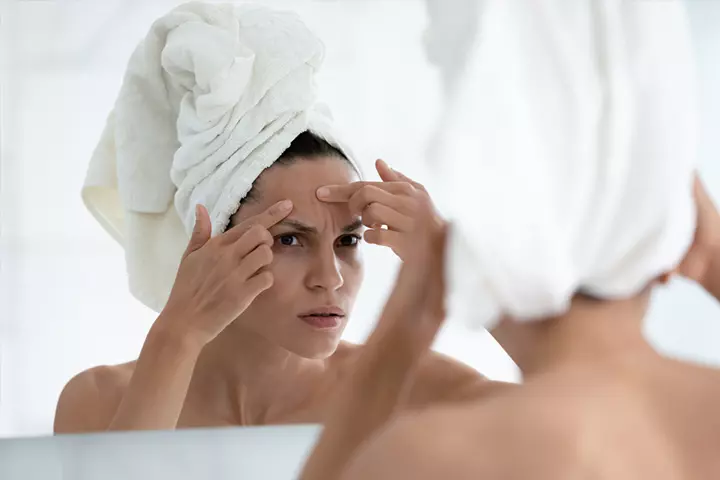
- Its antioxidant properties may help promote natural skin radiance and support a youthful appearance.
- It exhibits antimicrobial and anti-inflammatory properties that may prevent acne (4).
- Its antimicrobial and anti-inflammatory properties may help reduce the risk of common skin infections like psoriasis (5).
- It may help combat excess oil in the skin by regulating sebum production (6).
- It may help soothe itchy skin and inflammation, thanks to its anti-inflammatory properties (7).
However, apart from these benefits, the oil may also cause certain side effects. It is important to be aware of them too before you add tea tree oil to your skin care routine.
 Quick Tip
Quick TipAnecdotal evidence suggests that it may take several days to weeks for the skin tags to fall off using tea tree oil. Poor compliance in the application may delay the results.
Side Effects And Risks

Never use undiluted tea tree oil as it may irritate the skin. Also, if you are allergic to it, tea tree oil may cause:
- Itching
- Burning sensation
- Stinging sensation
- Redness
- Dry or rough skin
So, always consult your healthcare provider before using essential oils for skin tags or any skin conditions, especially if you have sensitive skin. Also, check the brands to ensure quality. Though skin tags do not necessarily require medical attention, it is certainly recommended that they be assessed by a qualified healthcare professional prior to treatment.
 Quick Tip
Quick TipWhen To See Your Doctor

If the skin tags persist even after several weeks of treatment with herbal remedies like tea tree oil, it is best to consult a doctor. There are non-surgical interventions that burn the skin tag off with plasma electricity. They are quick and effective and with minimal downtime. If you decide on surgical removal, the dermatologist will cut or remove the skin tags with a scalpel and scissors.
Keep reading to learn more about such alternative methods to remove skin tags.
Professional Removal Methods
Professional skin tag removal offers several options. The most common methods include (8):
- Radiocautery: This is the most widely used technique. The device uses heat from an electric current to cauterize and remove the skin tag.
- Snip Excision: The skin tag is gently snipped off with sterile surgical scissors in this technique. It is quick and effective, especially for smaller skin tags.
- Cautery: Similar to radiocautery, this method uses heat to burn off the skin tag, often requiring minimal healing time.
- Cryosurgery: This method freezes the skin tag using liquid nitrogen, causing it to fall off over time. Cryosurgery is often chosen for individuals sensitive to heat-based procedures.
For smaller skin tags, dermatologists may also use advanced laser treatments like the nanosecond Q-switched Nd or CO2 laser, which targets and removes the skin tag with precision. In some cases, a local anesthetic may be applied to ease any discomfort. Most of these methods are quick, and the small wound left behind usually heals naturally.
Infographic: Top 6 Reasons To Use Tea Tree Oil For Skin Tags
Skin tags are tiny, benign skin growths that can develop anywhere on the body. If you are looking for a natural way to treat them, try using tea tree oil. This oil has numerous properties that might help treat skin tags with minimal pain. We have compiled a list of the top reasons you should consider using tea tree oil to treat skin tags. Check out the infographic below for more details.

Illustration: StyleCraze Design Team
Skin tags are small, skin-colored growths caused by the human papillomavirus (HPV) in the neck, groin, thighs, or armpits. For those seeking natural alternatives or home remedies, you may use tea tree oil for skin tags. Studies suggest that topical application of tea tree oil may reduce skin tags over time. Dilute tea tree oil with a carrier oil before applying it to the skin tags to avoid skin irritation. If you are allergic to tea tree oil, it is best to avoid it as you may experience swelling, redness, or burning. Consult a doctor if the skin tags persist for a few weeks and you would like to have them removed.
Frequently Asked Questions
How long does it take to remove skin tags with tea tree oil?
It may take between a few weeks to months before your skin tag falls off.
Is tea tree oil safe for all skin types?
Tea tree oil is generally considered safe for most skin types. However, much anecdotal evidence suggest that it may cause irritation in some people with sensitive skin.
When should I stop using tea tree oil for skin tags?
You can stop using tea tree oil daily until the skin tag falls off; however, immediately discontinue use if you experience any redness or skin irritation.
Can I leave tea tree oil on my skin overnight for skin tags?
Yes. Tea tree is an essential oil with antimicrobial and anti-inflammatory properties (9). If you are using tea tree oil for skin tags, it is generally safe to leave it on overnight.
Learn how to remove skin tags naturally with this easy-to-follow video! Discover simple, natural remedies to help you get rid of skin tags quickly and safely. Watch it now!
Personal Experience: Source
StyleCraze's articles are interwoven with authentic personal narratives that provide depth and resonance to our content. Below are the sources of the personal accounts referenced in this article.
i. Tea Tree Oil Skin Tag Removal At Homehttps://www.youtube.com/watch?v=bPh-Y6JWMjg
References
Articles on StyleCraze are backed by verified information from peer-reviewed and academic research papers, reputed organizations, research institutions, and medical associations to ensure accuracy and relevance. Read our editorial policy to learn more.
- Human papillomavirus and skin tags: is there any association?
https://pubmed.ncbi.nlm.nih.gov/18583787/ - Tea Tree Oil (Melaleuca alternifolia)-An Efficient Treatment for Warts: Two Case Reports
https://www.researchgate.net/publication/313333903_Tea_Tree_Oil_Melaleuca_alternifolia-An_Efficient_Treatment_for_Warts_Two_Case_Reports - Successful topical treatment of hand warts in a paediatric patient with tea tree oil (Melaleuca alternifolia)
https://pubmed.ncbi.nlm.nih.gov/18940708/ - Tea tree oil gel for mild to moderate acne
https://pubmed.ncbi.nlm.nih.gov/27000386/ - Tea tree oil as a novel antipsoriasis weapon
https://pubmed.ncbi.nlm.nih.gov/22473218/ - Tea Tree Oil: Properties and the Therapeutic Approach to Acne—A Review
https://www.ncbi.nlm.nih.gov/pmc/articles/PMC10295805/ - A review of applications of tea tree oil in dermatology
https://pubmed.ncbi.nlm.nih.gov/22998411/ - Skin Tags
https://www.ncbi.nlm.nih.gov/books/NBK547724/ - Melaleuca alternifolia (Tea Tree) oil: a review of antimicrobial and other medicinal properties
https://pubmed.ncbi.nlm.nih.gov/16418522/
Read full bio of Dr. Tim Pearce
Read full bio of Monomita Chakraborty
Read full bio of Anjali Sayee
Read full bio of Swathi E







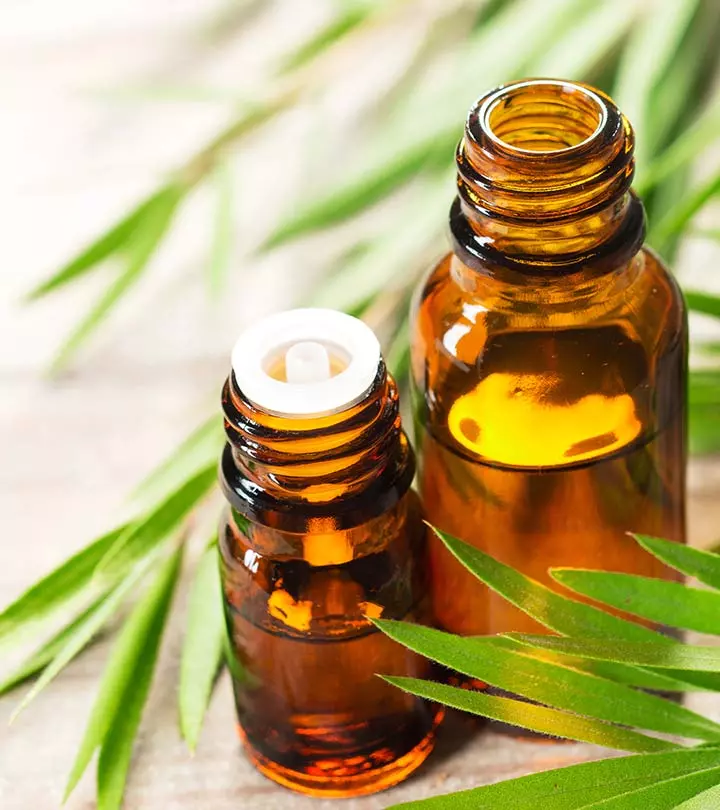

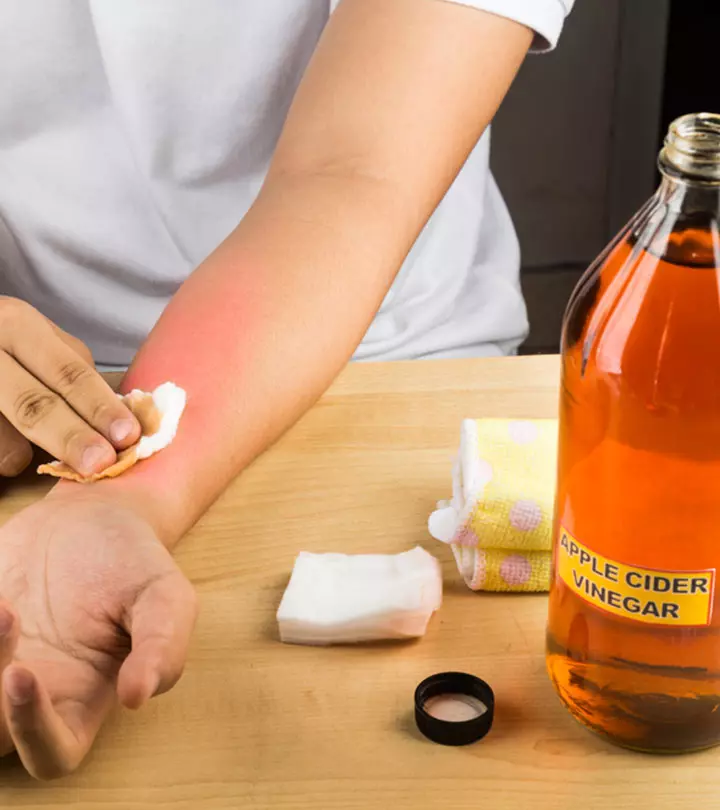


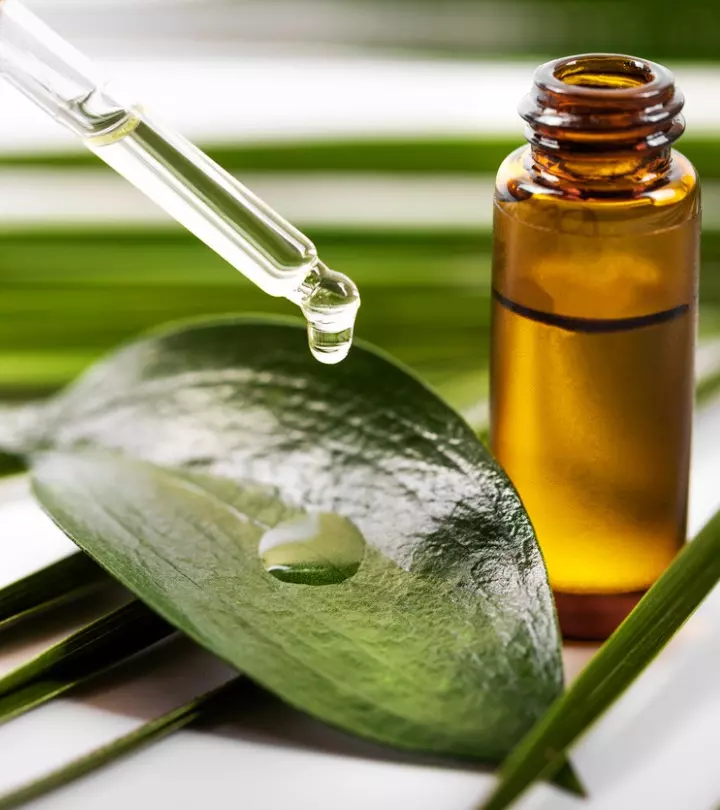




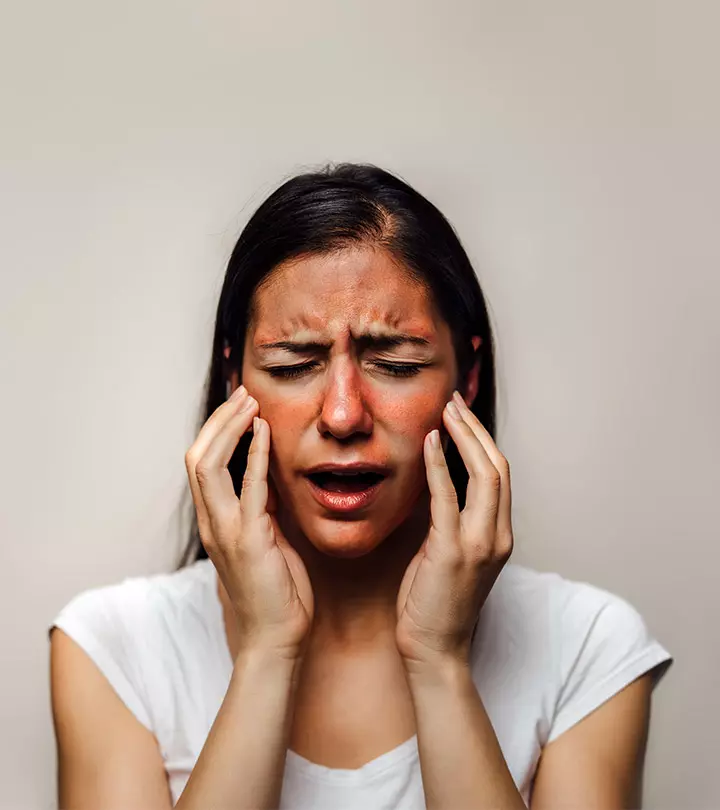




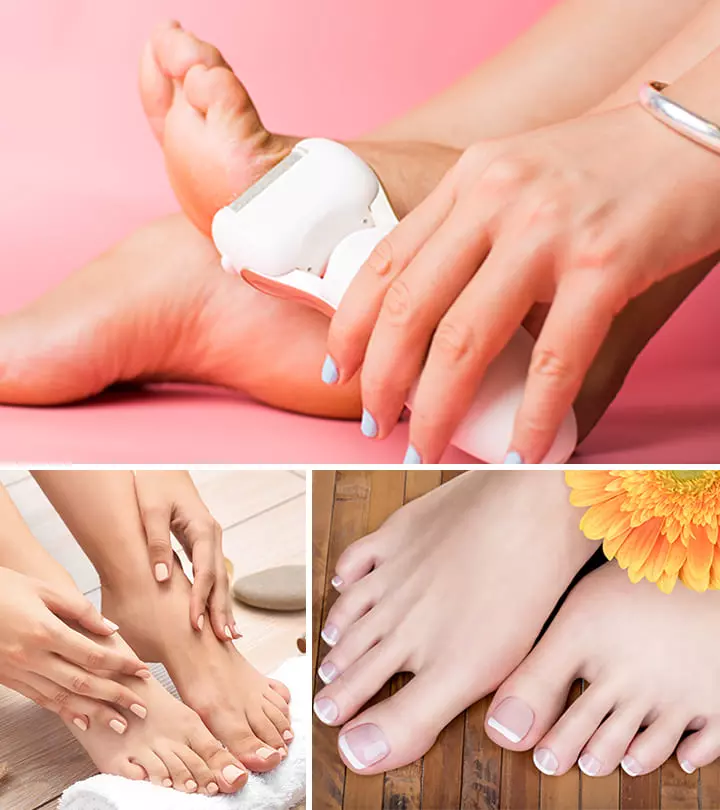
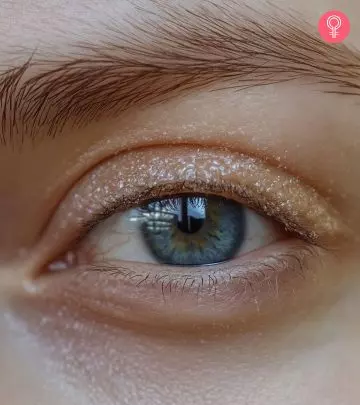


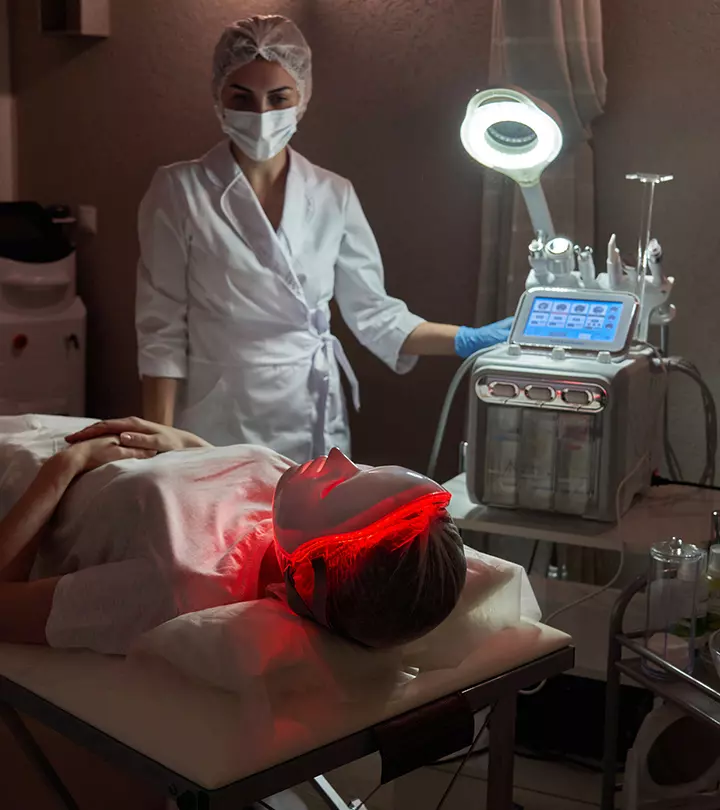
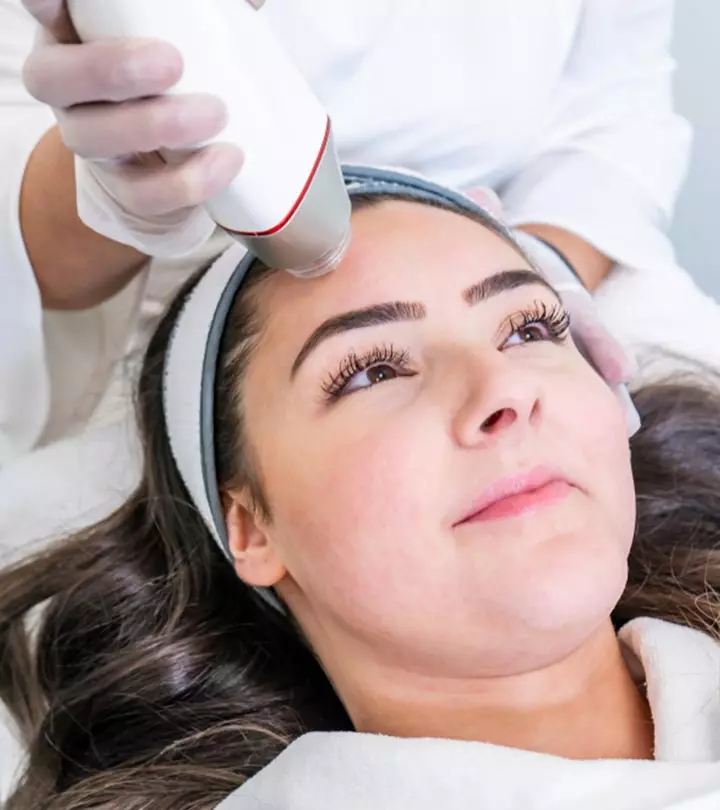
Community Experiences
Join the conversation and become a part of our empowering community! Share your stories, experiences, and insights to connect with other beauty, lifestyle, and health enthusiasts.